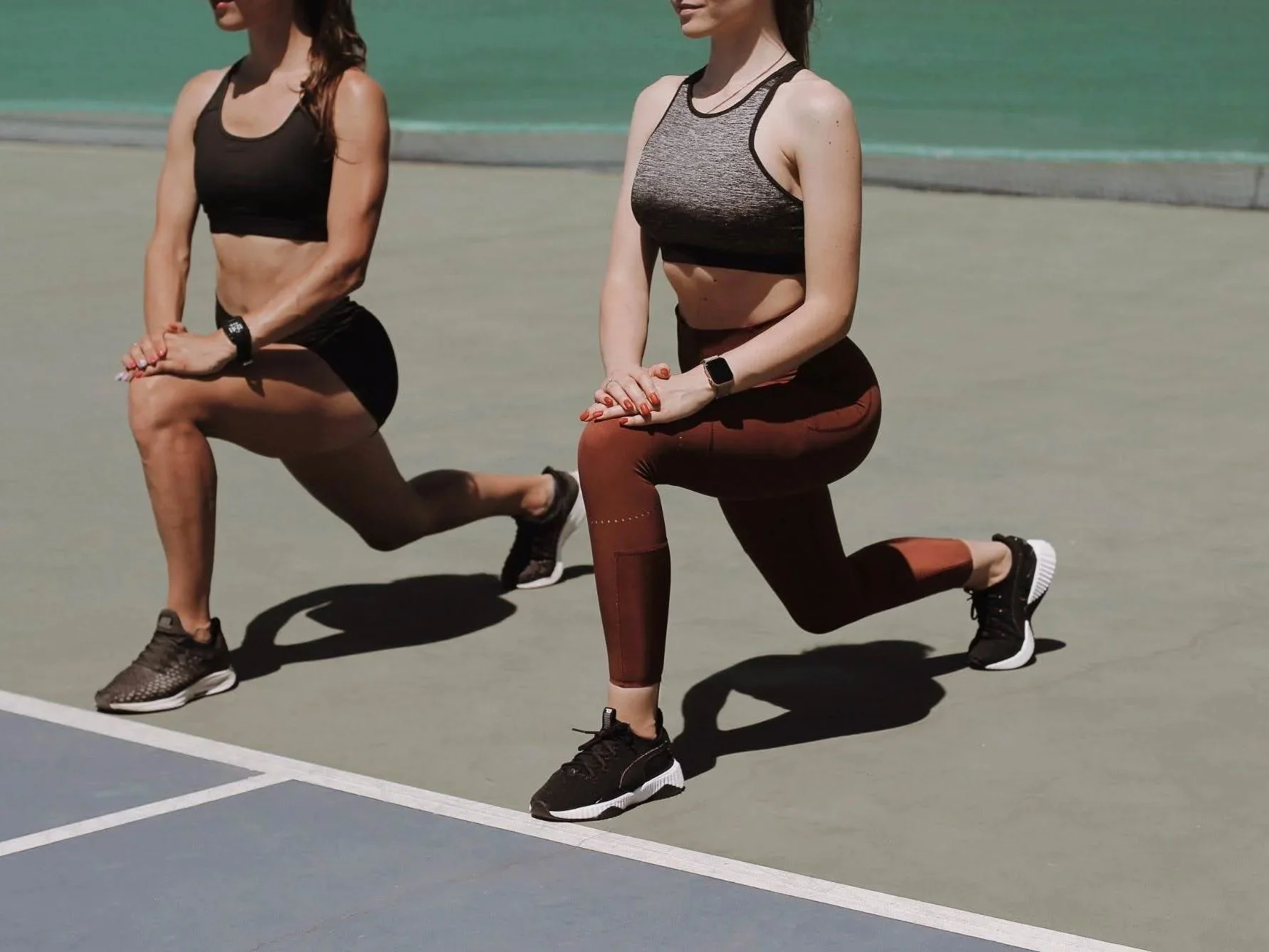From the Court to Everyday Life: Injury Prevention for Women Athletes
At this year’s USTA SheRallies Women’s Summit, The Knee Joint's Dr. Danielle Sartori spoke to a room of more than 200 attendees on one of her favorite topics: helping women athletes feel strong, resilient, and confident in their bodies both on and off the court. Invited by client and tennis enthusiast Erin Chamberlin, Adult Leagues Coordinator for USTA NorCal, Danielle emphasized that injury prevention isn’t about avoiding every setback. It’s about preparing wisely, training with progression, and recovering with care. With the right approach, women can protect their bodies, enjoy their sport more fully, and carry that strength into everyday life. Below, you’ll find some key takeaways from Danielle’s are shared below. The presentation itself is available for download at: thekneejoint.com/sherallies2025
Why Injuries Happen and How Pain Works
Things to consider as a female athlete:
Getting injured by doing too much too soon, without proper preparation or hydration.
An onset of pain that can be acute (short-term) or chronic (long-term).
For an acute injury, the modern approach has shifted from RICE to PEACE & LOVE focusing on protection, gradual loading, optimism, circulation, and corrective exercise.
The Role of Strength Training
Benefits of strength training for women athletes include stronger tendons, coordination, and confidence:
Strength training doesn’t eliminate injuries but helps tissues handle more stress.
It can lessen pain and reduce fall risk.
It’s one of the most effective ways to support quality of life and mental health.
Getting Started and Training Guidelines
NSCA strength training recommendations for women athletes: compound movements, progression, and balanced routines.
Begin simply and build progressively.
Work all major muscle groups with multi-jointed movements (e.g. a squat works hips, knees, and ankles).
For beginners: 2–3 sessions per week, 2–4 sets of 6–15 reps.
Foundational movements include upper-body push/pull, carries, squats/lunges, and hip-dominant lifts.
Warm-ups, Stretching, and Corrective Work
Dynamic warm-ups and proper stretching help women athletes prepare the body and prevent injury. The YouTube link above is a video of the Dynamic Warm-Up Exercises listed in order in the PDF linked https://www.thekneejoint.com/s/Dynamic-Warm-Up-For-Court-and-Field-Sports_The-Knee-Joint.pdf
A proper warm-up should raise heart rate, mimic sport-specific movements, and prepare body and mind.
Static stretching is best used after activity or for tight areas, done gently while muscles are warm.
Corrective exercises should be tailored to each athlete’s sport, injury history, and needs.
Smart Preparation is the Foundation of Athletic Excellence and Injury Prevention for Women Athletes
By incorporating dynamic warm-ups that mirror sport movements, using static stretching strategically post-activity, and implementing personalized corrective exercises, women athletes can optimize their performance while protecting their bodies. The investment in proper preparation pays dividends in both immediate performance gains and long-term athletic longevity. Schedule an evaluation appointment with The Knee Joint and start your journey to the longest and healthiest life as soon as possible. We’re here to support you!






